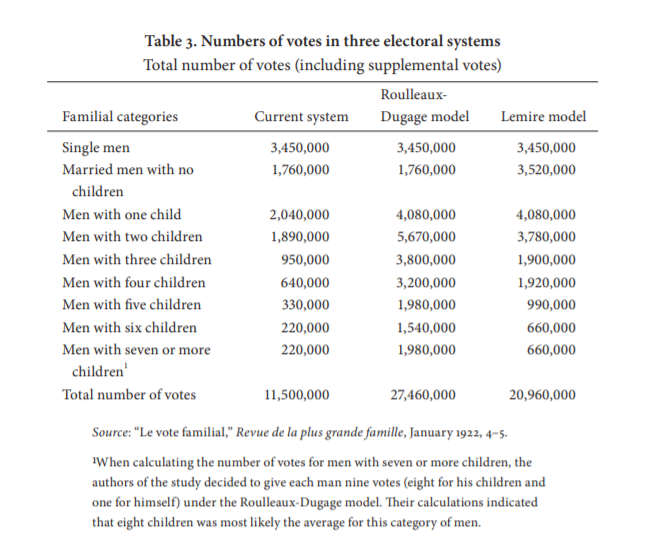In 1916, French Féderation républicaine parliamentarian delegate Roulleaux-Dugage, building on French interest in improving the national birth rate and solidifying paternal authority in the family, proposed a family vote model which would give fathers a vote for every child they had, as well as presumably giving married women the vote. This was passed by the French Chamber of Deputies in 1923, by 440 votes with 135 dissenters, but never was taken up by the French Senate. What if the French Senate deigned to take up the proposal, and passed it as well (which seems likely given the degree of support it had in the Chamber of Deputies), implementing a family vote system in France? Would it last? Inspire other systems? Produce any long-term changes in French politics?
For illustration, the proposed system's impact on votes:

For illustration, the proposed system's impact on votes:

Last edited: